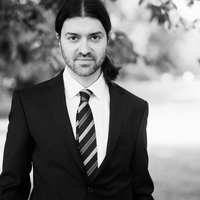
Sebastián Moro Tornese on Anagogic Music in Ancient Platonism
Music was seen as a crucial tool for the elevation and transformation of the human soul in ancient esoteric philosophy from Pythagoras to Olympiodorus, and beyond into the western esoteric traditions of later eras. We discuss the theory and practice of anagogic music in the ancient Pythagorean/Platonist tradition with Sebastián Moro Tornese.






